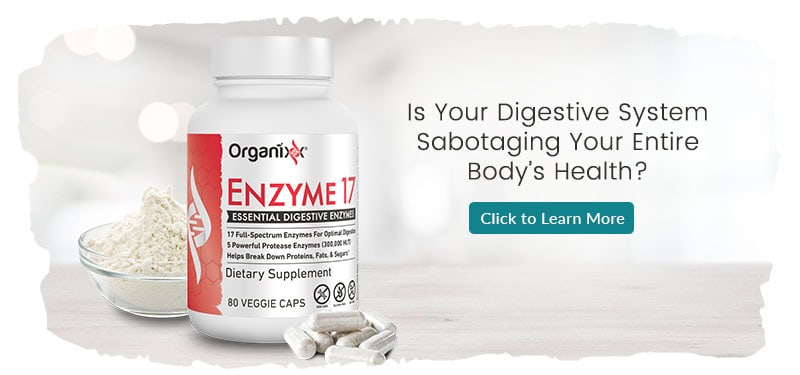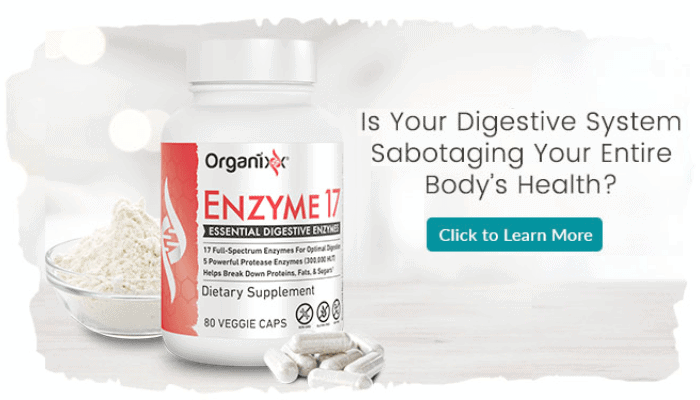Video Transcript:
Today, I want to talk to you about how to optimize health for men, and this is a really important topic because a lot of men rely on their partners, their spouses, to give them advice and tips on what supplements to take. Often, we as women in our households are supplying our gentlemen with supplementation.
Support Your Healthy Habits
So today, I’m going to offer some advice for any of you ladies who want to power up and support your male partner’s health and enhance their wellness, as well as any of you gentlemen looking for some basic guidance to help support your overall health. And this is going to really support and supplement any of the good, healthy lifestyle habits and maybe current lifestyle changes you’re implementing where you’re eating healthy foods, maxing out your sleep, and lowering your stress.
Address Nutritional Deficiencies
So, the first and most important thing for men to consider taking is a whole-food, plant-based supplement, and this is really, really critical because the multivitamin that has a good amount of bioavailable, plant-based nutrition can really create a foundational piece where you get a lot of the daily requirements of your nutrients, and a lot of health issues, when we look at aging and degeneration within the body, a lot of our problems or challenges ultimately come back to nutrient deficiencies.
So, I’m very excited to recommend the Multi-Vita-Maxx. This is our plant-based, powerful multivitamin. You’re going to get all of the required daily requirements of both your vitamins as well as key minerals like magnesium, and zinc, and chromium, which is really important for gentlemen looking to balance their blood sugar levels. I also like that this is a fermented form of a multivitamin, which enhances the bioavailability of this nutrition.
Get the Gut Healthy
Now, the second thing that’s really important is for gentlemen to support their gut health. We have a term that we reference to the balance of bacteria in the gut, and we call it the microbiome. That’s an assortment of bacteria that we want to be balanced and we want it to be very plentiful and very similar to like a coral reef – we want to have multiple types of bacteria that create this kind of rainbow cascade of good bacteria that balances our body.
And in one of my masterclasses, I host masterclasses every month, I have one of my masterclasses that digs into mastering your gut health and ultimately supporting your gut microbiome. One of the things I share in that class is that the microbiome, our microbes, the actual bacteria, enhances our hormone levels and it can actually influence our immune system and it can influence the inflammatory response in the body.
So, for any gentlemen who might be dealing with diabetes, or gout, or liver imbalances, maybe elevations in cholesterol and triglycerides, or even gentlemen who might be dealing with prostate imbalances, it’s really important for us to look at adding a good probiotic.
And we have ProBiotixx+, which is a very powerful form of L. plantarum, which we know is one of the super plentiful bacteria types that can help culture and rebalance your gut. So, making sure you get a good probiotic can be very beneficial in enhancing your overall gut health, which can balance your digestive grievances like IBS, or CIPO, or gas and bloating after consuming a meal, but it can also power up our brain health and balance our hormones.
Combat Inflammation to Prevent Illness & Disease
Now, another thing that is really important for men is to address inflammation. Ultimately, inflammation is the root of all illness and disease within the body, and systemic inflammation is something we need to combat. And signs or symptoms of inflammation can be swelling, it can be elevations in enzyme levels like our ALT and AST – those are labs that identify enzyme levels in our liver. We will present with hormone imbalances. Men will have elevations in prostate markers like PSA will be elevated or experience benign prostatitis. Other individuals might experience heart disease. And so rooted behind all of these illnesses and diseases is ultimately inflammation. Our cells, our cytokine process is overwhelmed and heightened, and there are really two ways that I use some supplementation here to combat inflammation.
The first thing is magnesium, a very well-balanced, multi-magnesium, like we have Magnesium 7. This can be really helpful in minimizing inflammation that gentlemen experience in their joints. Maybe you have joint pain, or osteoarthritis, or rheumatoid arthritis, and even gout.
Swelling is a byproduct of inflammation. So, if you notice you’re holding more fluid, Magnesium 7 is what I recommend. I’m kind of an expert in the swelling category, I’m specialized in lymphatic therapy, which is all about moving the excess fluid in the body. We use magnesium to flush fluid out of the body and it will flush fluid through the kidneys and bladder and you might notice a reduction in fluid retention of upwards of three to five pounds on the scale. So, Magnesium 7 is great for lowering your inflammation levels.
Address the Reduction in Stomach Acid & Enzymes As We Age
And then, last and final is at the age of 30, for all of us, men and women, we have a reduction in stomach acid levels and we start to notice that the pancreas is not producing enough digestive enzymes. That ends up leading to digestive grievances, imbalances in our digestive process, an inability to digest our food, assimilate the nutrients, and power up the body. That can also lead to constipation, and leaky gut, and gut-brain, gut-heart, gut-thyroid imbalances.
So, one of the best ways to combat this lowered stomach acid level and a reduction in digestive enzymes that your pancreas is producing – which by the way can often be an undercurrent for diabetes – Enzyme 17 is something you want to add to your daily practice and this is something where you take two of these supplements, about 20 to 30 minutes before you consume a meal.
Enzyme 17 is one of the most plentiful enzyme blends that is out there on the market. It’s one of my favorite products we have here at Organixx, and it can help your body digest and break down the assorted macro and micronutrients that you need to support your body.
Additionally, here is a bonus tip that I tell all my patients. If you are dealing with any inflammation, or maybe you have digestive imbalances you notice. Maybe there are food particles that you’re passing in your bowel contents. Enzyme 17 is something you can take at night on an empty stomach and it will help reduce the digestive grievances and will help clear up systemic inflammation.
So, that’s a little bonus tip, but overall, these four items are going to be very helpful in supporting overall men’s health, and are basic foundational elements that every gentleman should add to his daily supplement regimen. So, that’s my tip for you and I hope you share that with any of the gentlemen in your life. And gentlemen, if you have any questions about health and wellness, make sure you comment and hit that reply button and I will be taking questions and answering them in future videos.
Organixx Enzyme 17 contains a whopping FIVE kinds of powerful protease enzymes in combination with one of the most advanced enzyme blends on the planet. It’s scientifically designed to help your body break down and process nutrients for better absorption, digestion, and overall health.

One of the critical functions of the human body is to convert the foods we eat into smaller substances that serve as metabolic building blocks to regenerate blood, repair cells, build muscle tissue, and eliminate waste, among other duties.
Every time we put even a small morsel of food into our mouths, our bodies initiate a complex series of chemical reactions that facilitates its breakdown and assimilation. The absence of this process which would result in our sure and rapid demise − our bodies would essentially starve due to malnourishment.

Often when we talk about how the process works from a digestive standpoint, stomach acid and probiotic bacteria get most of the spotlight. But there’s another, perhaps even more important, piece of the puzzle that deserves at least equal attention: enzymes.
Enzymes are the catalysts that set the entire life cycle into motion, not only in the digestive tract but throughout the body. Enzymes are responsible for regulating every system of the body, and without them life simply couldn’t exist. As a result, an enzyme deficiency can have serious consequences for your health and well-being.
What Are Enzymes?
By definition, enzymes are biological molecules − mostly proteins and amino acids − that actively stimulate all of the various chemical reactions necessary for life. Everything from the function of our senses and vital organs to the state of our minds, hormones, and even emotions are a function of healthy enzymatic expression.
There isn’t a single system of the body, in fact, that doesn’t require enzymes in order to do its job − that’s how critically important enzymes are for life.
There are believed to be as many as 70,000 different types of enzymes produced by the body, each one uniquely equipped to perform its own special role in the metabolic process. It might come as a surprise, but only a very small percentage of these enzymes (probably less than one percent) have anything to do with digestion, though many of them can still offer benefits in this regard when taken as a dietary supplement.
Enzymes basically make it easier for the body to perform jobs that  would otherwise take far too long without them. They provision alternate pathways for chemical reactions to occur that require far less energy.
would otherwise take far too long without them. They provision alternate pathways for chemical reactions to occur that require far less energy.
Enzymes also facilitate certain critical life processes that might not ever occur at all, were it not for their ability to overcome otherwise constraining internal variables like oxygen levels, pH balance, and temperature.
Your Immune System Needs Enzymes
A critical component of the immune system, enzymes are also uniquely equipped to handle harmful bacteria, viruses, and even cancer cells due to their generalized ability to target and unravel protein molecules all the way down to the amino acid level.
Proteins, in case you weren’t aware, are at the root of nearly every major health condition. They’re either the offender itself, as in the case of food allergies, or they protect the offender.
DNA damage, chronic inflammation, cancer tumors, and pathogenic infections are all examples of diseases that flourish due to rogue proteins.
So on the one hand, enzymes work to improve the efficiency of cellular metabolism, utilizing energy in such a way as to facilitate a high-level life cycle than would otherwise be impossible without them. They also root out and disengage the rogue proteins that contribute to and cause disease, making them a systemic force both for healing and regeneration.
Digestive Enzymes vs. Systemic Proteolytic Enzymes
You might already be familiar with digestive enzymes like amylase, lipase, and trypsin that help to pre-digest food before it passes into the stomach and small intestine, mimicking the enzymes naturally produced by the pancreas.
Processed Food Is Dead Food
 Digestive enzymes are inherent to raw and living foods, helping to alleviate the immense digestive burden placed on our vital organs every time we eat.
Digestive enzymes are inherent to raw and living foods, helping to alleviate the immense digestive burden placed on our vital organs every time we eat.
This is one of the main reasons why consuming highly-processed foods is so problematic for digestion and overall health for both people and animals. Processed foods are enzymatically “dead” and very difficult to digest and assimilate.
Proteolytic Enzymes Are Systemic Healers
Beyond digestion, our bodies also rely upon enzymes that work at the systemic level to adaptively cleanse and rejuvenate the blood supply and heal soft tissue throughout the body.
This unique class of proteolytic enzymes, which includes names like serrapeptase, nattokinase, and Seaprose S (also known as Protease S), has been scientifically shown to function more in an antioxidant capacity, helping to:
- Keep inflammation in check by destroying inflammatory factors
- Improve circulatory function by preventing and dissolving blood clots
- Dissolve arterial and oral plaque
- Fortify immunity
- Improve exercise ability and recovery time
How they perform all of this and more can be explained by their highly-adaptable nature. Proteolytic enzymes are systemic healers that govern the totality of metabolic function, including gene expression.
And again, while the body makes these enzymes naturally, it often doesn’t  do so efficiently enough to keep every system of the body in check, hence the reason why many people develop chronic health problems: they’re enzyme deficient.
do so efficiently enough to keep every system of the body in check, hence the reason why many people develop chronic health problems: they’re enzyme deficient.
Signs You May Have an Enzyme Deficiency
It’s a bit of a circular issue that highlights why enzymes are perhaps the most underrated nutrient class for health and well-being. Your body requires plenty of them, both of the digestive and proteolytic varieties, in order to function as it should.
Some of these enzymes are manufactured directly by the body, while others come from enzymatically active foods − the end result of having optimal levels of both being a well-functioning metabolic system.
A Healthy Diet Is Rich in Enzymes
The only way your body will ever have the capacity to produce enough of its own enzymes to complement those that come from food is through strict adherence to a healthy diet.
 And yet, a healthy diet is only as beneficial as its enzyme content, since digestive enzymes are what ultimately facilitate the extraction and delivery of the food nutrients your body needs to activate its enzyme-production systems.
And yet, a healthy diet is only as beneficial as its enzyme content, since digestive enzymes are what ultimately facilitate the extraction and delivery of the food nutrients your body needs to activate its enzyme-production systems.
In other words, it all starts with healthy digestion, which in and of itself is contingent upon healthy intake of enzymes. One sign that you’re probably not getting enough enzymes is poor digestion. Digestive issues are rampant these days. According to a 2020 study published in the Journal of Family Medicine and Primary Care, digestive issues affect more than 60% of elderly people.
Symptoms such as indigestion and acid reflux are almost sure signs that something is amiss in the enzymatic breakdown and movement of your food. Other signs of possible and likely enzyme deficiency include:
- lack of energy and motivation
- persistent brain “fog”
- hormonal imbalance
- adrenal fatigue
- chronic inflammation
- weak immune system
- yeast overgrowth (i.e. candida)
- bowel irregularities (i.e. irritable bowel syndrome)
- weight gain or trouble losing weight
Essentially, if you feel persistently sluggish, chronically ill in some way, or your body just isn’t operating up to par, chances are you’re not getting enough enzymes.
They’re often the missing link behind “mysterious” health conditions that don’t seem to have a cause, at least by conventional standards, but that persist and persist no matter what their sufferers do to try to overcome them.
If this sounds like you, perhaps it’s time to look into supplementing your diet with more enzymes − they might just be the remedy your body is begging to find.



